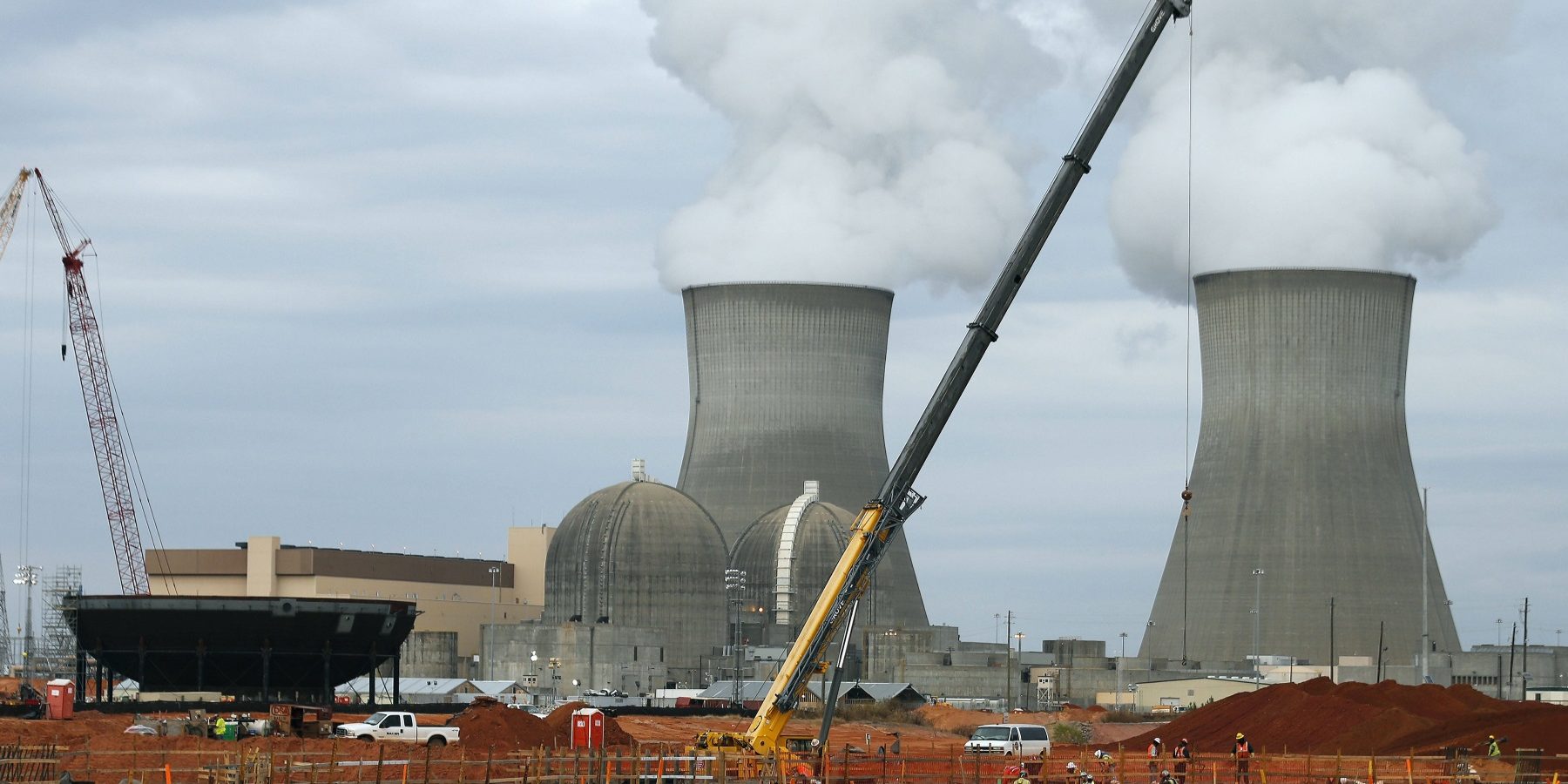Nuclear Vote: PSC Chairman Says They Won’t Cancel Vogtle

Construction at Plant Vogtle has gone billions of dollars over-budget and is five years behind schedule.
John Bazemore / Associated Press
Georgia regulators vote Thursday on the fate of a controversial nuclear power expansion.
Construction at Plant Vogtle has gone billions of dollars over-budget and is five years behind schedule. Now, it’s up to the Georgia Public Service Commission to decide whether, despite that, construction should continue.
PSC chairman Stan Wise said the commission won’t vote to cancel the project.
“This commission will not say, ‘Do not continue this plant,’” he told WABE in an interview. “The commission will say, ‘Here’s what we think that you should have to do to continue the plant. Accept or reject.’”
Georgia Power is the biggest owner of the project, and the only utility involved that’s regulated by the PSC. In its proposal to keep construction going, Georgia Power laid out conditions that would allow it to continue, including approval of added costs going to Georgia Power customers, rather than shareholders.
Related: How Plant Vogtle affects electric bills, climate change and the U.S. nuclear industry
Georgia Power ratepayers already pay for Vogtle on their monthly electric bills.
Wise said he won’t go along with everything Georgia Power is asking for. Instead, he expects members will vote to allow the project to continue under certain conditions, for instance, lowering Georgia Power’s return on equity.
“If they disagree with the position of this commission, it will be up to the partners and the company to determine whether or not they will go forward or discontinue the project,” he said.
Vogtle is the only nuclear power construction project in the country. A similar project in South Carolina was canceled earlier this year after Westinghouse, the company building both Vogtle and the South Carolina project, went bankrupt. That leaves Vogtle all that’s left of what nuclear boosters a decade ago hoped would be a “nuclear renaissance” in the United States.
Related: Why The U.S. ‘Nuclear Renaissance’ Fizzled
“It’s probably the largest and most pivotal vote most of us will take in our careers,” Wise said. “It will affect Georgians for decades to come, positively, and probably some negatives, as far as costs associated with getting this next generation of nuclear power built.”
So Thursday will be a big day, said Wise. And he said there could still be surprises.
“As long as I’ve been here, there’s always surprises,” he said. “Death, taxes and surprises on game day.”








